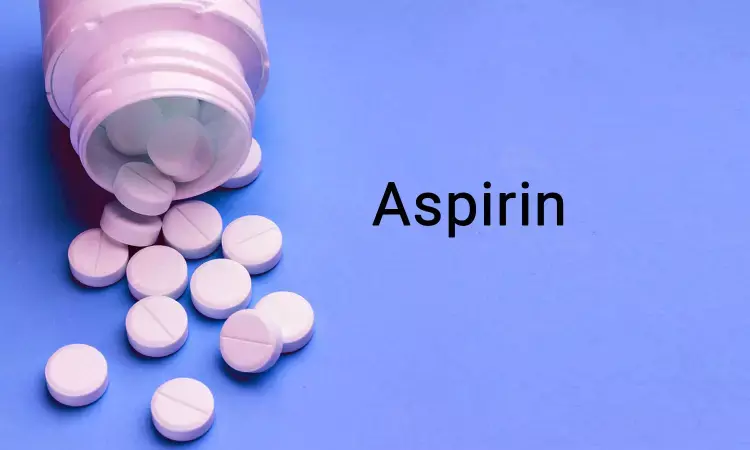- Home
- Medical news & Guidelines
- Anesthesiology
- Cardiology and CTVS
- Critical Care
- Dentistry
- Dermatology
- Diabetes and Endocrinology
- ENT
- Gastroenterology
- Medicine
- Nephrology
- Neurology
- Obstretics-Gynaecology
- Oncology
- Ophthalmology
- Orthopaedics
- Pediatrics-Neonatology
- Psychiatry
- Pulmonology
- Radiology
- Surgery
- Urology
- Laboratory Medicine
- Diet
- Nursing
- Paramedical
- Physiotherapy
- Health news
- Fact Check
- Bone Health Fact Check
- Brain Health Fact Check
- Cancer Related Fact Check
- Child Care Fact Check
- Dental and oral health fact check
- Diabetes and metabolic health fact check
- Diet and Nutrition Fact Check
- Eye and ENT Care Fact Check
- Fitness fact check
- Gut health fact check
- Heart health fact check
- Kidney health fact check
- Medical education fact check
- Men's health fact check
- Respiratory fact check
- Skin and hair care fact check
- Vaccine and Immunization fact check
- Women's health fact check
- AYUSH
- State News
- Andaman and Nicobar Islands
- Andhra Pradesh
- Arunachal Pradesh
- Assam
- Bihar
- Chandigarh
- Chattisgarh
- Dadra and Nagar Haveli
- Daman and Diu
- Delhi
- Goa
- Gujarat
- Haryana
- Himachal Pradesh
- Jammu & Kashmir
- Jharkhand
- Karnataka
- Kerala
- Ladakh
- Lakshadweep
- Madhya Pradesh
- Maharashtra
- Manipur
- Meghalaya
- Mizoram
- Nagaland
- Odisha
- Puducherry
- Punjab
- Rajasthan
- Sikkim
- Tamil Nadu
- Telangana
- Tripura
- Uttar Pradesh
- Uttrakhand
- West Bengal
- Medical Education
- Industry
Aspirin may increase BMD and reduce fracture risk: Study

Aspirin is an inhibitor of prostaglandin production and may influence the cellular basis of bone remodeling responsible for maintaining the material and structural strength of bone.
Australia: Chronic low-grade inflammation contributes to age-related cardiovascular, neurological, respiratory and musculoskeletal conditions. Low-grade inflammation is associated with increased bone loss and fracture risk. Prostaglandin, an important inflammatory mediator, is likely to have a key role in bone remodelling attributable to inflammation.
Prostaglandin E2 stimulates bone resorption and formation and is produced largely from cyclooxygenase-2 induction. Prostaglandins acutely inhibit osteoclast function. However, their chronic effect is to stimulate bone resorption by increasing replication of osteoclast precursors, and differentiation to mature osteoclasts.
Aspirin is an inhibitor of prostaglandin production and may influence the cellular basis of bone remodelling responsible for maintaining the material and structural strength of bone. It is one of the most commonly used medications worldwide and has the potential to benefit and/or prevent many chronic diseases.
The researchers conducted a systematic review and exploratory meta-analysis of observational studies. This study was published in the British Medical Journal. A total of 12 studies were included in the meta-analysis, Electronic searches of MEDLINE and Embase, and a manual search of bibliographies was undertaken for studies published to 28 March 2018. Studies were included if participants were men or women aged ≥18 years; the exposure of interest was aspirin.Risk of bias was assessed using the Joanna Briggs Institute Critical Appraisal Checklists for observational studies. Following are the findings:
1)Data pooled from six studies that included 511 390 people indicated aspirin was associated with a 17% lower odds of any fracture.
2)Aspirin was associated with a higher total hip BMD for women and men.
3)No meta-analyses were undertaken for femoral neck or total body BMD as there were too few studies.
While the advantages of decreased fracture risk and higher BMD from aspirin use may be modest for individuals, whether established in prospective controlled trials, they may give a large population benefit given the common use of aspirin in older people.
For further reading click on the following link,
MBBS
Dr K B AARTHI-has completed MBBS from SRM UNIVERSITY TAMIL NADU,Her interest is in the field of Pediatrics and Anaesthesia, also passionate in doing research and publishing articles.She joined Medical Dialogues in 2020 and publishes health news and medical updates. Email: editorial@medicaldialogues.in. Contact no. 011-43720751,9786713226
Dr Kamal Kant Kohli-MBBS, DTCD- a chest specialist with more than 30 years of practice and a flair for writing clinical articles, Dr Kamal Kant Kohli joined Medical Dialogues as a Chief Editor of Medical News. Besides writing articles, as an editor, he proofreads and verifies all the medical content published on Medical Dialogues including those coming from journals, studies,medical conferences,guidelines etc. Email: drkohli@medicaldialogues.in. Contact no. 011-43720751


